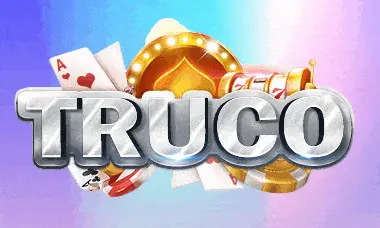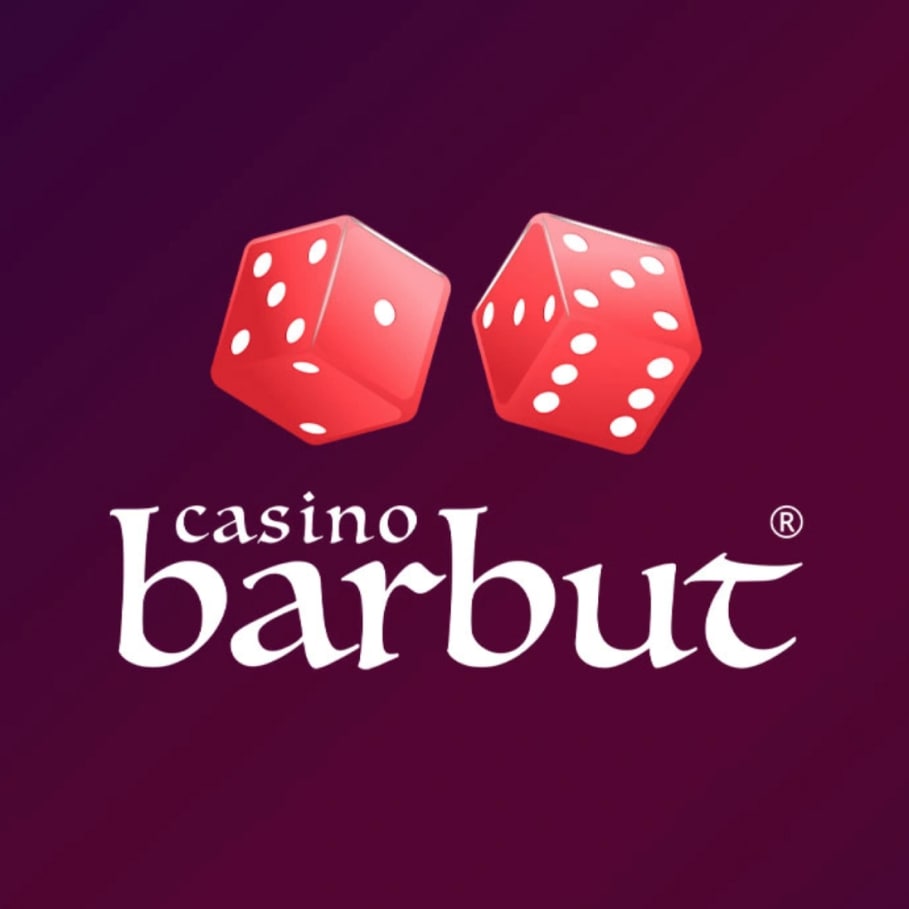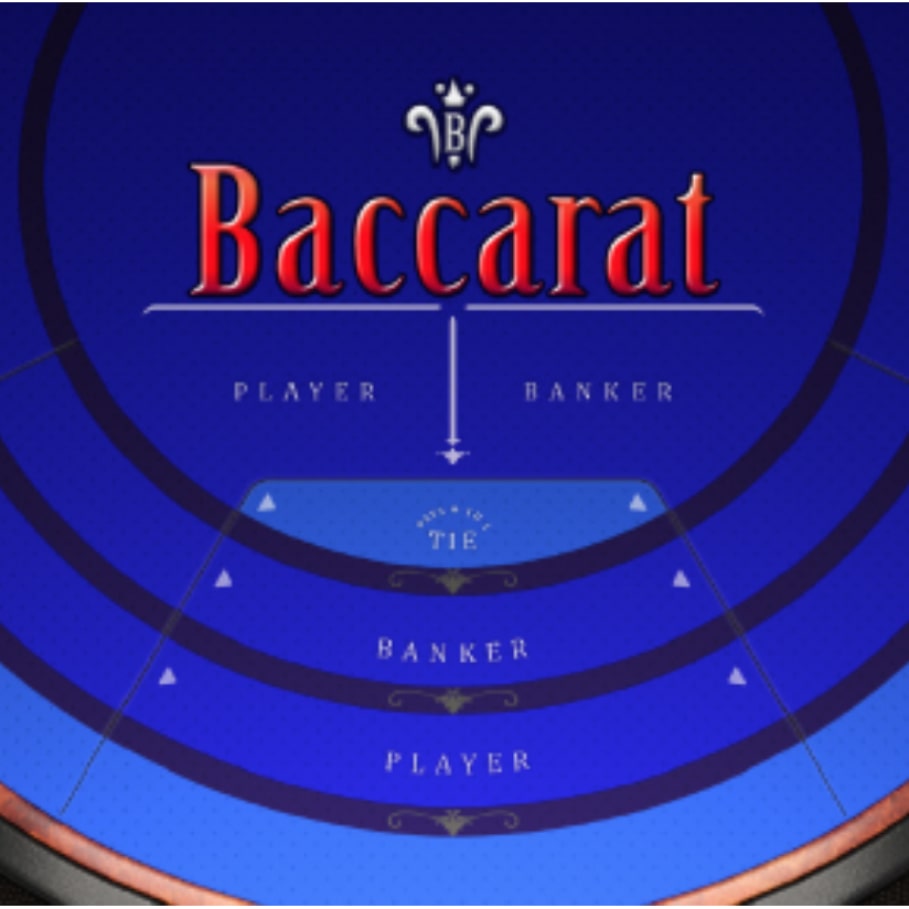Monopoly Tycoon/Strategies — StrategyWiki Strategy guide and game reference wiki

From StrategyWiki, the video game walkthrough and strategy guide wiki< Monopoly TycoonJump to navigationJump to search- Monopoly Tycoon
- Table of Contents
- Gameplay
- Walkthrough
Table of Contents
Gameplay- Controls
- Strategies
WalkthroughAppendices
Contents
1Tactics
1.1The two fundamental playing styles
1.2Applying the fundamental playing styles
1.3Going to auction
1.4The dummy auction tactic
1.5Railroads and utilities
1.5.1The not-so-secret railroad strategy
1.6Buying out the competition
1.7When good buildings go bad
1.8When to refurbish
2Hints and tips
Tacticsedit | edit source
The two fundamental playing stylesedit | edit source
- Blitzkrieg: Build as much as possible as early as possible, usually starting in low-prestige districts with low-quality buildings to save on costs. Directly compete with other stores, but also supply commodities that are not available elsewhere as soon as possible. Avoid 24-hour warnings like the plague in the first two years or so, in order to minimize risk and keep building.
- Tortoise: It’s called the ‘Tortoise’ because of the story of the tortoise and the hare, and also after the old Roman legionary formation of the same name, whose main purpose was to defend. Though in the old story the tortoise beats the hare, the pure Tortoise style isn’t necessarily more powerful in and of itself than Blitzkrieg; in fact, it is probably the opposite, even though it’s designed to bring Blitzkrieg strategies down (we’ll explain in a minute). The idea is the player starts slowly and surely, not spending much money, then jumps in by buying property when the rivals are too weak to do much. The Tortoise player can probably easily get a monopoly this way, and may have the spare cash to buy practically every business on the blocks in question before one of the leases expires. Blitzkrieg is designed to overwhelm the opponent, whereas Tortoise is designed for slow strangulation of the opponent, possibly followed by a quick ‘kill’. Neither style is suitable for all situations; you must determine what the situation is and adapt your strategy to fit. Moreover, these fundamental play styles are meant to provide a base for your true strategy, rather than it being your entire strategy. If you try a pure Tortoise style, you probably won’t be too successful (except maybe in scenarios centered around collecting a target daily profit), because you won’t have the commercial backing necessary to give your empire any real value.
Applying the fundamental playing stylesedit | edit source
Blitzkrieg is aggressive; Tortoise is defensive. Blitzkrieg is fast and loose; Tortoise is slow and calculated. Most people play somewhere in between, perhaps by building somewhat rapidly, but while keeping an eye on a nice-looking property which offers, say, $1000 daily rent to the owner and has some nice room to spare to boot.
Remember, though, that offense wins the game. You can play a mostly-defensive game, but it’s your offense that tips the odds in your favor. Consider a game of chess. You start the game in an excellent defensive position. Every move you make in the opening of chess weakens your defensive position. Yet, if you were to maintain your initial position, you will be destroyed by a reasonable player quite easily, because your defense becomes less appropriate for the situation. The same is true in Monopoly, and holds true in Monopoly Tycoon. The fact is, your relative position weakens no matter what you do. Just as you can’t sit around in chess because you start with a good defense, you can’t sit around in Monopoly Tycoon waiting for your opponent to break through your “impenetrable” defense, because they will.
Going to auctionedit | edit source
Auctions haven’t really changed at all from the Monopoly board game. When making a bid, be sure to consider these factors:
- How much you (and your rivals) want the property.
- How much the property would benefit you (or your rival).
- Your (and your rivals’) cash on hand.
- Your (and your rivals’) profitability.
Beware of the oldest trick in the book: the rival who keeps bidding and bidding, then suddenly pulls out, leaving you with a huge amount of money to pay for the property. Of course, if you try this yourself, your opponent may turn the tables and pull out on you, and you have the same problem. Weigh the situation very carefully if your opponent doesn’t seem to want to give up. Use past experiences with that particular rival (if you’ve had any) as your guide. If your rival is totally unpredictable, it may be too dangerous to bother with high bids at all unless your opponent is short on cash (or even then, if he seems psychotic enough).
Notice that bidding always proceeds from left to right. You have the option to pass, though this is uncommon. The only possible use for this function is to see how others after you might react before you bid, with the hopes of them pulling out so they might not increase the bid so much. Assuming that nobody passes, the person on the left is always first to bid, and the person on the right is always last. Here’s an example case to demonstrate the significance of this: Racecar is going for a monopoly. The order from left to right is Shoe, Racecar, Thimble, Wheelbarrow, Iron. Racecar is raising the bid up to the sky past the others’ comfort zone; nobody else cares about the property that much, they just want Racecar to not have it. So if Racecar pulls out, everybody else immediately pulls out, and the person to Racecar’s left, Shoe, gets the short end of the stick if he didn’t pull out earlier. If he did, then Iron gets the short end. If she did as well, then Wheelbarrow does. See the pattern? Therefore, be very careful if you’re in a bidding war along with several other people against a common foe and you bid immediately before your rival. If the rival pulls out, you will probably pay the cost because you’re going to be the last one to bid.
The dummy auction tacticedit | edit source
If your rivals are low on cash, and you only have one or two rivals, you can sometimes trick them into buying things they don’t really need by hosting a “dummy auction”. Why would you do this? So you can buy something yourself without as hard a fight. Consider the following case: You own two railroads, and the other two are unowned. You start the auction for a third railroad. The first thing that pops into your opponent’s mind is going to be, “He’s going to try to buy them all!”, when in fact you don’t care too much about the railroad, but it’d be nice if you got it. You’re setting your sights on Boardwalk, but a hard fight for Boardwalk can be expensive, even when your rivals are low on cash. Your rivals fight hard to prevent you from getting railroad #3, so the price gets pretty high, $2600, and you decide to let your old buddy Battleship have it, because you wouldn’t be willing to pay much more for it yourself, especially when you can still lease the remaining railroad. The good captain will then be less likely to bid high on the next auction, reducing your competition for Boardwalk. You noticed Shoe also bid pretty high, so you host a second dummy auction for the other railroad in order to weaken him, and the tactic works again. (Remember, even if it didn’t, you’d still have three railroads, so you win either way!) You then auction Boardwalk, and your dumbfounded opponents pull out early because they don’t have any money.
Railroads and utilitiesedit | edit source
Railroads and utilities give you much greater income if you buy more than one. If you own one railroad, you get 25% of the income from that railroad, or 25/4 =6.25% of the income of all four railroads, assuming they all have the same income (they generally do). However, if you own two railroads, you get 50% of the income from both railroads, or 50/2= 25% of the income from all four railroads. In other words, you quadruple your income instead of doubling it. Not only are two railroads better than one, they’re way better than one. The same principle applies to utilities. Generally, railroads are more profitable than utilities at the beginning of the game, then utilities become more profitable as the players start paying operating costs.
The not-so-secret railroad strategyedit | edit source
Here’s the trick several people have come up with to beat the $3000 profit in one day scenario: buy all the railroads. The income you get from this alone will send you over the edge much more quickly than doing this by building retail stores. This is a cheap trick, however, because you’ll probably be deep in the red, and, if the game were to continue, you would go bankrupt. Ethics aside, this trick is really for people who have beaten the scenario already on its highest difficulty level and don’t want to waste their time doing it again. If you want to be a good player, you should learn how to beat this scenario without resorting to tactics that would bankrupt you if the game didn’t end when you won.
Pay close attention to railroads and utilities in “first to a daily profit” multiplayer games! You should be careful about people who want all the railroads and utilities in general, but especially in these games!
Buying out the competitionedit | edit source
If you own a block, you can buy any building on it that you don’t own already. This is especially helpful if most of the buildings are owned by the city, because as a rule, business in city buildings is dismal because of high prices, meaning the building is cheaper for you to buy. If you own a monopoly, then such buildings will be extremely cheap, and of course they may not be so unprofitable once you sell things at sensible prices…
Of course, if you can buy your opponent’s businesses, go ahead and do so. You’ll probably want a monopoly to do this, so the prices won’t be so insane. It may be best to never buy a building unless you have a monopoly on the property it’s on, except in exceptional circumstances. But remember, if you buy an opponent’s business, it’s a source of income he won’t have.
When good buildings go badedit | edit source
If sales are abysmal, and cutting prices doesn’t seem effective, then you need to refurbish, sell the building to the city, or demolish the building entirely. You won’t get a ton of money for selling the business for the very reason that it’s no good. Refurbishing, on the other hand, requires you to invest more money. Demolishing is rare to be sure, because it costs money and the only thing you’ll have when it’s done is a little extra space to build more stuff on. Typically, this isn’t worth it, because you can refurbish instead, but there are exceptional situations (typically when space is at a premium).
When to refurbishedit | edit source
As noted before, you can refurbish when your business goes bad, but there is another time you can refurbish that isn’t quite as obvious: when a new building makes the older one obsolete. Let’s say you have the capability to build a nightclub on a block (that is, it’s 1940 or after) which has a ballroom, but no bar. Instead of building either a bar or a nightclub, refurbish the ballroom into a nightclub, which will provide dancing and drinks, the two things the ballroom and the bar provide separately. You don’t want to duplicate resources. Alternatively, build the nightclub and refurbish the ballroom into something else. Just make sure you don’t have a bar or a ballroom near a nightclub, because they’re not as efficient.
Likewise, say you have a clothing store near your opponent’s clothing store, so you have a bit of heated competition. Suppose that eventually you get two things: sick of the competition, and a monopoly on the opposing store’s block color group. You buy the opposing clothing store, but now you have two clothing stores. You may want to get rid of one of them by changing it into something else, so you have more variety, and so you can raise the price of clothing if doing so seems feasible.
Hints and tipsedit | edit source
- Remember, don’t keep spare cash around. In fact, you can be in the red most of the game and yet be the most successful player, though it isn’t always the best policy. Just make sure you’re not in the red at midnight two days in a row unless you like being ejected from the game.
- Poll often, but when polling the area, poll all of the blocks around that area. While the block your potential store is on carries more weight as far as demand goes, surrounding blocks can carry a potent influence. If you don’t know whether to build a cafe or a toy store, see if one of the surrounding blocks wants one more than the other.
- Know when to use the chance cards. If you’re in the red and are on a 24-hour warning, the wrong chance card can smash your chances of remaining in the game! However, if you’re so deep in the red at this point that you’re almost beyond hope, take the chance card because the chance that it will help you outweighs any potential danger. Most of the time, take the card, unless you’re in some financially unstable situation.
- Don’t ever succumb to bankruptcy unless you’re hopelessly behind. If you’re on a 24 hour warning and you just can’t pull out of debt, but you can get close, try to sell a business or two, preferably ones that aren’t very profitable anyway, or perhaps a leased block that isn’t doing you any good.
- Remember that the bidding order can play an important role in auctions.
Go to top-
- Monopoly Tycoon
- Strategies
- Monopoly Tycoon
Table of Contents
Gameplay- Controls
- Strategies
WalkthroughAppendicesRetrieved from “https://strategywiki.org/w/index.php?title=Monopoly_Tycoon/Strategies&oldid=176715"Hidden category: - Sub-pages
The two fundamental playing stylesedit | edit source
- Blitzkrieg: Build as much as possible as early as possible, usually starting in low-prestige districts with low-quality buildings to save on costs. Directly compete with other stores, but also supply commodities that are not available elsewhere as soon as possible. Avoid 24-hour warnings like the plague in the first two years or so, in order to minimize risk and keep building.
- Tortoise: It’s called the ‘Tortoise’ because of the story of the tortoise and the hare, and also after the old Roman legionary formation of the same name, whose main purpose was to defend. Though in the old story the tortoise beats the hare, the pure Tortoise style isn’t necessarily more powerful in and of itself than Blitzkrieg; in fact, it is probably the opposite, even though it’s designed to bring Blitzkrieg strategies down (we’ll explain in a minute). The idea is the player starts slowly and surely, not spending much money, then jumps in by buying property when the rivals are too weak to do much. The Tortoise player can probably easily get a monopoly this way, and may have the spare cash to buy practically every business on the blocks in question before one of the leases expires. Blitzkrieg is designed to overwhelm the opponent, whereas Tortoise is designed for slow strangulation of the opponent, possibly followed by a quick ‘kill’. Neither style is suitable for all situations; you must determine what the situation is and adapt your strategy to fit. Moreover, these fundamental play styles are meant to provide a base for your true strategy, rather than it being your entire strategy. If you try a pure Tortoise style, you probably won’t be too successful (except maybe in scenarios centered around collecting a target daily profit), because you won’t have the commercial backing necessary to give your empire any real value.
Applying the fundamental playing stylesedit | edit source
Blitzkrieg is aggressive; Tortoise is defensive. Blitzkrieg is fast and loose; Tortoise is slow and calculated. Most people play somewhere in between, perhaps by building somewhat rapidly, but while keeping an eye on a nice-looking property which offers, say, $1000 daily rent to the owner and has some nice room to spare to boot.
Remember, though, that offense wins the game. You can play a mostly-defensive game, but it’s your offense that tips the odds in your favor. Consider a game of chess. You start the game in an excellent defensive position. Every move you make in the opening of chess weakens your defensive position. Yet, if you were to maintain your initial position, you will be destroyed by a reasonable player quite easily, because your defense becomes less appropriate for the situation. The same is true in Monopoly, and holds true in Monopoly Tycoon. The fact is, your relative position weakens no matter what you do. Just as you can’t sit around in chess because you start with a good defense, you can’t sit around in Monopoly Tycoon waiting for your opponent to break through your “impenetrable” defense, because they will.
Going to auctionedit | edit source
Auctions haven’t really changed at all from the Monopoly board game. When making a bid, be sure to consider these factors:
- How much you (and your rivals) want the property.
- How much the property would benefit you (or your rival).
- Your (and your rivals’) cash on hand.
- Your (and your rivals’) profitability.
Beware of the oldest trick in the book: the rival who keeps bidding and bidding, then suddenly pulls out, leaving you with a huge amount of money to pay for the property. Of course, if you try this yourself, your opponent may turn the tables and pull out on you, and you have the same problem. Weigh the situation very carefully if your opponent doesn’t seem to want to give up. Use past experiences with that particular rival (if you’ve had any) as your guide. If your rival is totally unpredictable, it may be too dangerous to bother with high bids at all unless your opponent is short on cash (or even then, if he seems psychotic enough).
Notice that bidding always proceeds from left to right. You have the option to pass, though this is uncommon. The only possible use for this function is to see how others after you might react before you bid, with the hopes of them pulling out so they might not increase the bid so much. Assuming that nobody passes, the person on the left is always first to bid, and the person on the right is always last. Here’s an example case to demonstrate the significance of this: Racecar is going for a monopoly. The order from left to right is Shoe, Racecar, Thimble, Wheelbarrow, Iron. Racecar is raising the bid up to the sky past the others’ comfort zone; nobody else cares about the property that much, they just want Racecar to not have it. So if Racecar pulls out, everybody else immediately pulls out, and the person to Racecar’s left, Shoe, gets the short end of the stick if he didn’t pull out earlier. If he did, then Iron gets the short end. If she did as well, then Wheelbarrow does. See the pattern? Therefore, be very careful if you’re in a bidding war along with several other people against a common foe and you bid immediately before your rival. If the rival pulls out, you will probably pay the cost because you’re going to be the last one to bid.
The dummy auction tacticedit | edit source
If your rivals are low on cash, and you only have one or two rivals, you can sometimes trick them into buying things they don’t really need by hosting a “dummy auction”. Why would you do this? So you can buy something yourself without as hard a fight. Consider the following case: You own two railroads, and the other two are unowned. You start the auction for a third railroad. The first thing that pops into your opponent’s mind is going to be, “He’s going to try to buy them all!”, when in fact you don’t care too much about the railroad, but it’d be nice if you got it. You’re setting your sights on Boardwalk, but a hard fight for Boardwalk can be expensive, even when your rivals are low on cash. Your rivals fight hard to prevent you from getting railroad #3, so the price gets pretty high, $2600, and you decide to let your old buddy Battleship have it, because you wouldn’t be willing to pay much more for it yourself, especially when you can still lease the remaining railroad. The good captain will then be less likely to bid high on the next auction, reducing your competition for Boardwalk. You noticed Shoe also bid pretty high, so you host a second dummy auction for the other railroad in order to weaken him, and the tactic works again. (Remember, even if it didn’t, you’d still have three railroads, so you win either way!) You then auction Boardwalk, and your dumbfounded opponents pull out early because they don’t have any money.
Railroads and utilitiesedit | edit source
Railroads and utilities give you much greater income if you buy more than one. If you own one railroad, you get 25% of the income from that railroad, or 25/4 =6.25% of the income of all four railroads, assuming they all have the same income (they generally do). However, if you own two railroads, you get 50% of the income from both railroads, or 50/2= 25% of the income from all four railroads. In other words, you quadruple your income instead of doubling it. Not only are two railroads better than one, they’re way better than one. The same principle applies to utilities. Generally, railroads are more profitable than utilities at the beginning of the game, then utilities become more profitable as the players start paying operating costs.
The not-so-secret railroad strategyedit | edit source
Here’s the trick several people have come up with to beat the $3000 profit in one day scenario: buy all the railroads. The income you get from this alone will send you over the edge much more quickly than doing this by building retail stores. This is a cheap trick, however, because you’ll probably be deep in the red, and, if the game were to continue, you would go bankrupt. Ethics aside, this trick is really for people who have beaten the scenario already on its highest difficulty level and don’t want to waste their time doing it again. If you want to be a good player, you should learn how to beat this scenario without resorting to tactics that would bankrupt you if the game didn’t end when you won.
Pay close attention to railroads and utilities in “first to a daily profit” multiplayer games! You should be careful about people who want all the railroads and utilities in general, but especially in these games!
Buying out the competitionedit | edit source
If you own a block, you can buy any building on it that you don’t own already. This is especially helpful if most of the buildings are owned by the city, because as a rule, business in city buildings is dismal because of high prices, meaning the building is cheaper for you to buy. If you own a monopoly, then such buildings will be extremely cheap, and of course they may not be so unprofitable once you sell things at sensible prices…
Of course, if you can buy your opponent’s businesses, go ahead and do so. You’ll probably want a monopoly to do this, so the prices won’t be so insane. It may be best to never buy a building unless you have a monopoly on the property it’s on, except in exceptional circumstances. But remember, if you buy an opponent’s business, it’s a source of income he won’t have.
When good buildings go badedit | edit source
If sales are abysmal, and cutting prices doesn’t seem effective, then you need to refurbish, sell the building to the city, or demolish the building entirely. You won’t get a ton of money for selling the business for the very reason that it’s no good. Refurbishing, on the other hand, requires you to invest more money. Demolishing is rare to be sure, because it costs money and the only thing you’ll have when it’s done is a little extra space to build more stuff on. Typically, this isn’t worth it, because you can refurbish instead, but there are exceptional situations (typically when space is at a premium).
When to refurbishedit | edit source
As noted before, you can refurbish when your business goes bad, but there is another time you can refurbish that isn’t quite as obvious: when a new building makes the older one obsolete. Let’s say you have the capability to build a nightclub on a block (that is, it’s 1940 or after) which has a ballroom, but no bar. Instead of building either a bar or a nightclub, refurbish the ballroom into a nightclub, which will provide dancing and drinks, the two things the ballroom and the bar provide separately. You don’t want to duplicate resources. Alternatively, build the nightclub and refurbish the ballroom into something else. Just make sure you don’t have a bar or a ballroom near a nightclub, because they’re not as efficient.
Likewise, say you have a clothing store near your opponent’s clothing store, so you have a bit of heated competition. Suppose that eventually you get two things: sick of the competition, and a monopoly on the opposing store’s block color group. You buy the opposing clothing store, but now you have two clothing stores. You may want to get rid of one of them by changing it into something else, so you have more variety, and so you can raise the price of clothing if doing so seems feasible.
Hints and tipsedit | edit source
- Remember, don’t keep spare cash around. In fact, you can be in the red most of the game and yet be the most successful player, though it isn’t always the best policy. Just make sure you’re not in the red at midnight two days in a row unless you like being ejected from the game.
- Poll often, but when polling the area, poll all of the blocks around that area. While the block your potential store is on carries more weight as far as demand goes, surrounding blocks can carry a potent influence. If you don’t know whether to build a cafe or a toy store, see if one of the surrounding blocks wants one more than the other.
- Know when to use the chance cards. If you’re in the red and are on a 24-hour warning, the wrong chance card can smash your chances of remaining in the game! However, if you’re so deep in the red at this point that you’re almost beyond hope, take the chance card because the chance that it will help you outweighs any potential danger. Most of the time, take the card, unless you’re in some financially unstable situation.
- Don’t ever succumb to bankruptcy unless you’re hopelessly behind. If you’re on a 24 hour warning and you just can’t pull out of debt, but you can get close, try to sell a business or two, preferably ones that aren’t very profitable anyway, or perhaps a leased block that isn’t doing you any good.
- Remember that the bidding order can play an important role in auctions.
Go to top-
- Monopoly Tycoon
- Strategies
- Monopoly Tycoon
Table of Contents
Gameplay- Controls
- Strategies
WalkthroughAppendices
Search
FAQ
How to get dice in Monopoly GO for free?
After reaching Level 35, you’ll unlock the Quick Wins feature which can be accessed from the bottom left of the screen. With it unlocked, complete tasks in-game and you’ll earn various rewards, including free dice rolls.
Do people make money on Monopoly Go?
No, Monopoly Go does not pay real money. Instead, you earn virtual currency that can be used for in-game purchases like leveling up landmarks, which you need to do to complete each board.Feb 7, 2024
How do Monopoly GO dice links work?
Odds. There are 36 combinations which result in rolls from 2 to 12, in a bell curve distribution. A roll of 7 is most common; rolls of 2 and 12 are the least likely. The odds of rolling doubles on any given roll are 1:6.
How to get free spins on Monopoly Go?
As you progress through the game and complete goals, events, or tournaments, you can earn sticker packs. Once you complete a sticker pack set, you will earn rewards such as free dice rolls and money. Inviting friends to Monopoly Go will earn you 30 free dice rolls whenever someone signs up, too.3 hours ago
What is the name of the pirate dice game?
Liar’s dice originated as a bluffing board game titled Dudo during the 15th century from the Inca Empire, and subsequently spread to Latin American countries. The game later spread to European countries via Spanish conquistadors. In the 1970s, numerous commercial versions of the game were released.
monopoly go free dice, free dice monopoly go today, monopoly go dice links today, free dice monopoly go reddit, free monopoly go dice 2024, free dice links monopoly go reddit,
This site only collects related articles. Viewing the original, please copy and open the following link:Monopoly Tycoon/Strategies — StrategyWiki Strategy guide and game reference wiki




























































































































































